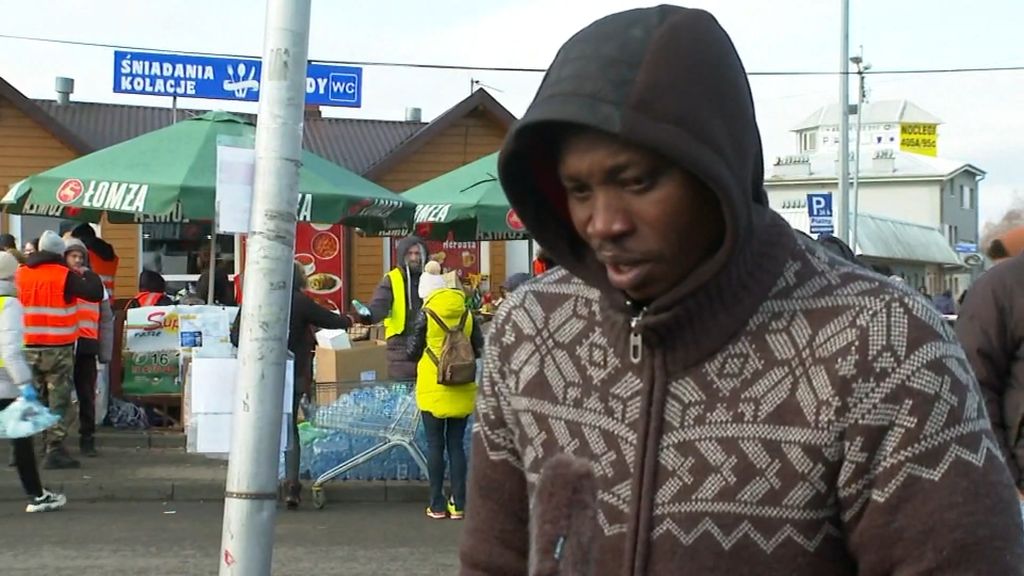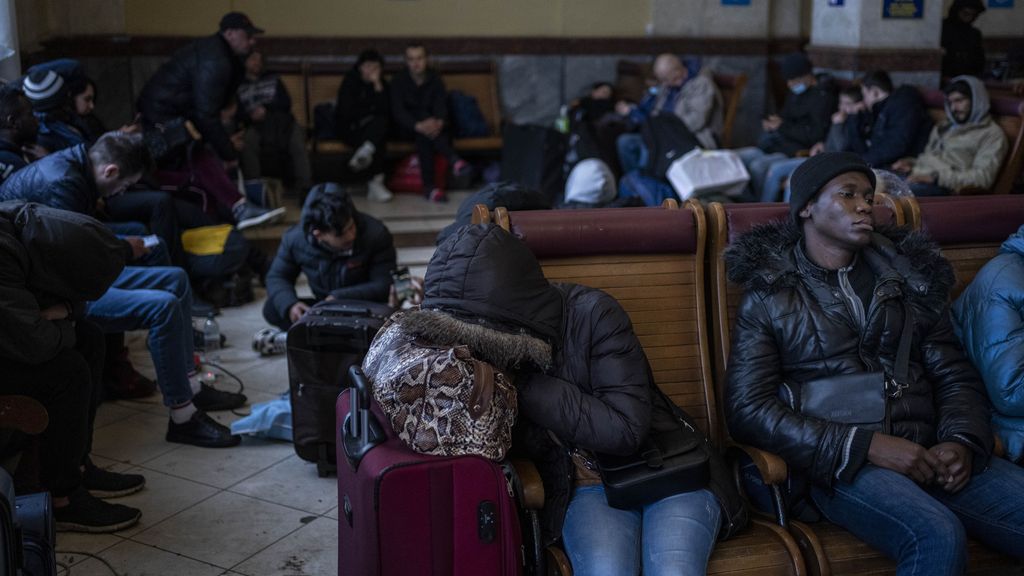NOS News•
After the Russian invasion, refugees from Ukraine were welcomed around the world with open arms. But this does not apply to everyone: a significant portion of the nearly 20,000 African students studying in Ukraine have experienced racism and discrimination while fleeing.
They were turned away, verbally abused and abused at train stations and border crossings. A year later, the situation has hardly improved. “It’s like we’re not welcome anywhere and we can’t go on with our lives,” says Zimbabwean medical student Corinne Skye.
I did a year ago Social media Her trip report. She and thousands of others shared their stories under the hashtag #AfricansinUkraine. From England, where she ended up, Sky was the spider in this group’s web. She provides fellow sufferers with information, communications, and a listening ear.
It is not possible to continue her studies: “The tuition fee here is five times higher than in Ukraine, I just can’t afford it.” Therefore, it is completely focused on helping African students. “Nobody is defending this group, so I consider it my duty.”
According to Ukrainian government figures, 76,000 foreign students were studying in the country when the war began. A quarter of these come from African countries, mainly Nigeria, Ghana and Morocco. Almost all of them have left now and many have had to stop their studies.
“Ukraine used to be seen as Valhalla for students looking for affordable education in Europe,” says Nigerian Jessica Orakbo of Weesp, where she lives with a host family. “The costs are low, it’s relatively easy to get a visa, the education is good and we’re taught in English.”
Over the past year, African students have mushroomed. According to data compiled by Sky, the largest group is still located in Europe, including Poland, Ireland, Austria and the Netherlands. Some have returned to Ukraine and are trying to complete their studies there. But many returned to their homeland. “A painful decision, because they often save years to study abroad and coming home empty-handed feels like a failure.”
After the invasion, the European Union activated Temporary Protection Directive (RTB). This gives refugees from Ukraine the right to shelter, medical care, work and education. But this is a little different for refugees who do not have a Ukrainian passport.
“The degree of protection varies from country to country,” says Carolus Gruters, a researcher at the Center for Migration Law at Radboud University in Nijmegen. “In one country, they receive the same treatment as displaced Ukrainians, but in others, they are still considered their country of origin. If it is deemed ‘safe’, they can be sent back.”
Students also face all kinds of problems when looking for options to continue their education, such as high tuition costs, high living costs, and scholarships that are only available to Ukrainian students. African students do not meet the admission requirements, do not have the correct papers or their degrees are not recognized. It is often not possible to simply continue your studies at another university.
The scheme for displaced ‘third country nationals’ in the Netherlands has recently been modified. While the special right of residence applies to Ukrainians until March 2024, this group will soon enter the normal asylum procedure. According to Grütters, modifying this rule is illegal. “The Netherlands should treat all refugees from Ukraine the same. But they are now returning from that, with dire consequences for this group.”
Orakpo faces these consequences every day. She was able to take her final medical exams online, graduated via Zoom and is now officially a doctor. But despite the health care shortage and many orders, she has not yet found a job in the Netherlands. “It’s very stressful, and it keeps me awake,” she says. If she does not succeed before September, she must report to Ter Apel to register as an asylum-seeker.
“I don’t want that at all,” Orakpo says. “So I will then return to Ukraine, even if it is dangerous. At least from there I can legally apply for a visa. I will not give up my dream of working as a doctor in Europe or America.”
right in the future
From England, Korrine Sky continues to work with African students. a petition in which it calls for equal treatment by universities has been signed 135,000 times. “We have the right to education, in the future.”
Last year, shortly after the Russian invasion of Ukraine, student Gabriel shared his story:

Nigerian at the Polish border: they beat me with sticks

“Infuriatingly humble social media buff. Twitter advocate. Writer. Internet nerd.”








